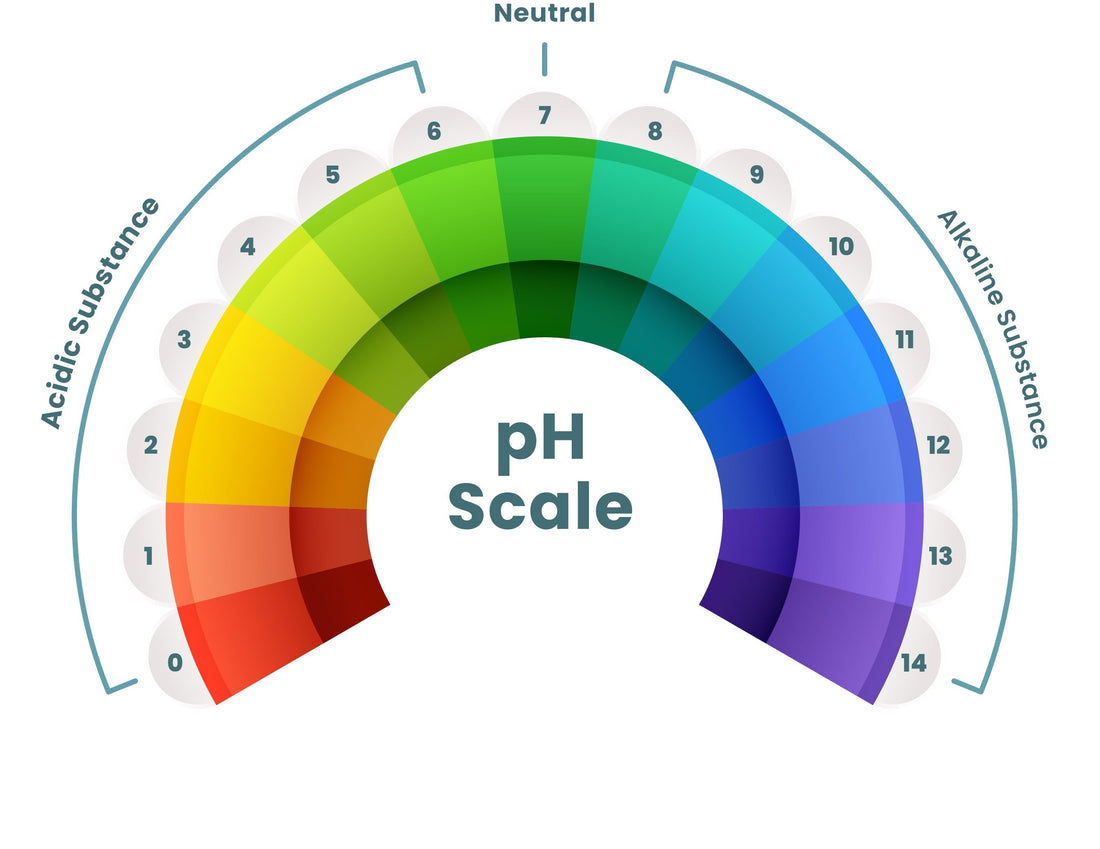Urine pH is a critical indicator of the body's acid-base balance, a fundamental aspect of overall health. It reflects the kidneys' ability to maintain this balance by regulating the acidity or alkalinity of urine. This article explores the role of urine pH, its implications for health, and ways to regulate it.
What is urine pH?
Urine pH measures the acidity or alkalinity of urine on a scale of 0 to 14, where 7 is neutral. A pH below 7 indicates acidic urine, while a pH above 7 indicates alkaline urine. Normally, urine pH ranges from 4.5 to 8, and its fluctuations can reveal important health information.
How is monitoring urine pH important for your health?
This indicator plays a key role in the elimination of acids produced by metabolism. Urine that is too acidic or too alkaline can signal imbalances in the diet, infections or metabolic disorders. For example, a consistently low pH can be associated with high-protein diets and acidosis, while a high pH can suggest urinary tract infections or diets rich in vegetables and fruits.
It is therefore important to test your urinary pH regularly. By detecting its variations early, it is possible to adjust your diet, hydration and lifestyle to prevent more serious health problems, including kidney stones and metabolic complications.
What are the main factors that influence urinary pH?
Like other biomarkers in the human body, urinary pH can be influenced by different factors, each of which affects the acidity level of urine. There are 3 main factors:
- Diet : Foods high in protein and grains tend to make urine more acidic, while fruits and vegetables increase alkalinity.
- Hydration : Proper hydration promotes balanced urinary pH and helps the kidneys eliminate waste efficiently.
- Use of medications and supplements : Some medications can influence urine pH and should be taken into account in the analysis.
Urinary pH, a key element in the body's acid-base balance
Acid-base balance regulates the pH of body fluids to ensure the proper functioning of cells and biological systems. A slightly alkaline blood pH (7.35-7.45) is essential for digestion, metabolism, and enzyme activity. This balance is dependent on diet, physical activity, stress, and certain medical conditions.
The body regulates pH through the kidneys, lungs, and blood buffers. The kidneys adjust acid excretion, and the lungs adjust carbon dioxide. An imbalance can cause acidosis or alkalosis, leading to fatigue, cramps, breathing problems, and, in the long term, complications such as kidney stones.
How to monitor and regulate your urinary pH?
For accurate results, it is best to test your urine in the morning, on an empty stomach, and record your results regularly to track trends over time. Keeping a diary of your pH values can help identify changes related to diet, stress, or other factors. If abnormalities persist, it is recommended that you consult a healthcare professional.
Measure your urine pH in 3 minutes with myDOXA
Balancing your diet is important for optimal sports performance, test your urine pH as well as 14 other indicators with myDOXA. It's easy, fast and can be done in the comfort of your home.
If your urinary pH is out of balance, there are several ways to influence the acidity level of your urine:
- Dietary adjustments : Eating more alkalizing fruits and vegetables like spinach, bananas, and almonds can help balance an overly acidic pH. Reducing acid-forming foods like red meats, high-fat dairy, and refined sugars is also beneficial.
- Adequate hydration : Drinking water regularly helps dilute acids in urine and maintain a balanced pH.
- Supplement Use : Taking alkalizing supplements, such as baking soda or alkaline minerals, can help balance pH.
- Moderate physical activity : Regular exercise promotes good circulation and helps the body flush out acids, but it is important to avoid overtraining, which can sometimes cause urine to become acidic.
If you have any doubts about the interpretation of your results or any additional questions about your health, it is strongly recommended that you consult a healthcare professional.

